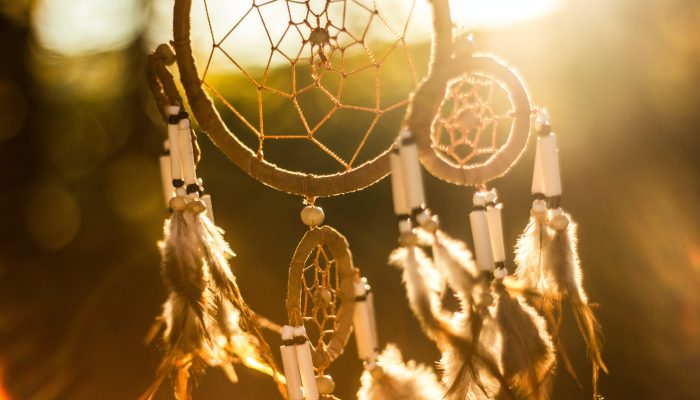Inside a jail cell at Laguna Pueblo in New Mexico, Albertyn Pino’s only plan was to finish the six-month sentence for public intoxication, along with other charges, and to return to her abusive boyfriend.
That’s when she was offered a lifeline: An invitation to the tribe’s Healing to Wellness Court. She would be released early if she agreed to attend alcohol treatment and counseling sessions, secure a bed at a shelter, get a job, undergo drug testing and regularly check in with a judge.
Pino, now 53, ultimately completed the requirements and, after about a year and a half, the charges were dropped. She looks back at that time, 15 years ago, and is grateful that people envisioned a better future for her when she struggled to see one for herself.
“It helped me start learning more about myself, about what made me tick, because I didn’t know who I was,” said Pino, who is now a case manager and certified peer support worker. “I didn’t know what to do.”
The concept of treating people in the criminal justice system holistically is not new in Indian Country, but there are new programs coming on board as well as expanded approaches. About one-third of the roughly 320 tribal court systems across the country have aspects of this healing and wellness approach, according to the National American Indian Court Judges Association.
Some tribes are incorporating these aspects into more specialized juvenile and family courts, said Kristina Pacheco, Tribal Healing to Wellness Court specialist for the California-based Tribal Law and Policy Institute. The court judges association is also working on pilot projects for holistic defense — which combine legal advocacy and support — with tribes in Alaska, Nevada and Oklahoma, modeled after a successful initiative at the Confederated Salish and Kootenai Tribes in Montana.
“The thought and the concept will be different from tribe to tribe,” said Pacheco. “But ultimately, we all want our tribal people … to not hurt, not suffer.”
People in the program typically are facing nonviolent misdemeanors, such as a DUI, public intoxication or burglary, she said. Some courts, like in the case of Pino, drop the charges once participants complete the program.
A program at the Port Gamble S’Klallam Tribe in Washington state applies restorative principles, and assigns wellness coaches to serve Native Americans and non-Natives in the local county jail, a report released earlier this year by the John D. and Catherine T. MacArthur Foundation outlined. The Muscogee (Creek) Nation in Oklahoma has a reintegration program that includes financial support and housing services, as well as cultural programming, career development and legal counsel. In Alaska, the Kenaitze Indian Tribe’s wellness court helps adults in tribal and state court who are battling substance abuse and incorporates elements of their tribe’s culture.
“There’s a lot of shame and guilt when you’re arrested,” said Mary Rodriguez, staff attorney for the court judges association. “You don’t reach out to those resources, you feel that you aren’t entitled to those resources, that those are for somebody who isn’t in trouble with the law.”
You can read the full article at Now This News.

